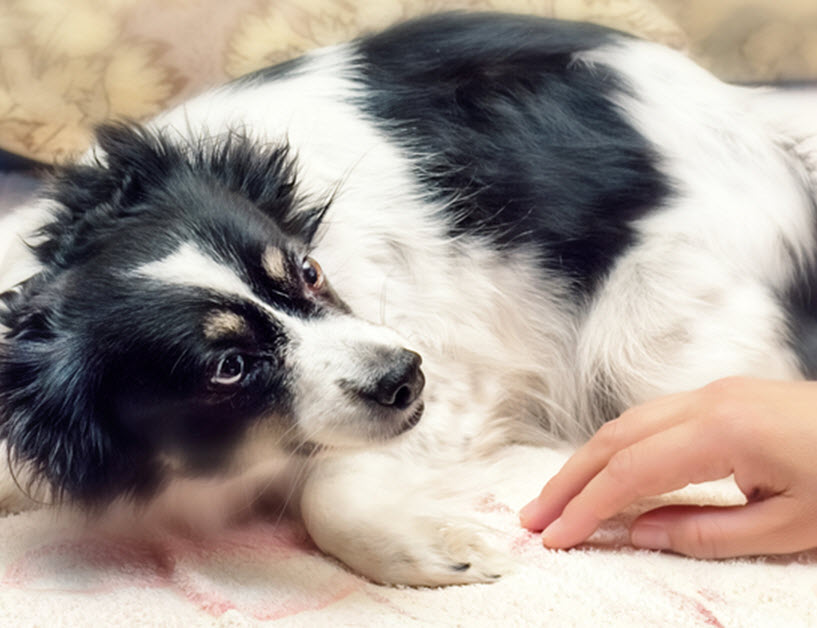Our demanding jobs and go-go lifestyles make us all too aware of the effects of stress and anxiety. Inconsistent appetite and fluctuating weight, nervous behavior, headaches, difficulty sleeping, depression and digestive problems are just a few of the outcomes of stress. So, what about our dogs? Can they experience anxiety too?
Dogs can absolutely experience anxiety. As responsible dog owners, we need to slow down and pay close attention to the signs that could indicate your dog is suffering from anxiety or stress. The triggers could be psychological, physical or environmental. Left unchecked, his stress could lead to severe depression, a compromised immune system and behavior problems.
Watch for the Signs
Every dog is unique in how they display their stress. If you see a change in your dog’s behavior, stop and evaluate what may be bothering him. Possible signs of anxiety and stress could include:
- Changes in appetite or weight
- Excessive barking or vocalization
- Changes in his potty patterns
- Excessive licking or chewing
- Disobedience
- Aggressive or destructive behavior
- Trembling or restlessness
- Depression
If your dog is exhibiting any of these signs, you’ll first want to have your vet rule out any physical problems. If there are no medical problems, your vet will advise you in treating his stress.
Causes of Anxiety in Dogs
Since our dogs can’t talk and tell us what is bothering them, we need to be vigilant about anything in their daily life that could be affecting them, such as:
- Separation from family
- Boredom
- Lack of exercise / play
- Fear of loud noises, certain people or other animals
- Inadequate nutrition
- Health problems / pain
- Inadequate living quarters
- Changes in daily routine
- Loss or addition of a family member or pet
Prevention & Treatment
Making your dog’s well-being a consistent priority is the first step toward preventing anxiety and stress. Challenge him with new toys, games or obedience training. Keep him physically fit with regular walks and games that make him use his muscles. Make time for nurturing his emotional being with belly rubs or massages; and make sure he has plenty of nutritious food, fresh water and safe shelter in your home.
Treating anxiety can be a long process, but if you are persistent, you will help your dog find relief. The first place to start is a visit to the vet to rule out any medical issues. If the trigger isn’t physical, then close observation and elimination of environmental causes is next.
If the anxiety is caused by a temporary situation such as car travel, thunder or a house full of guests, a soft chew treat for calming could be the answer. These supplements contain natural ingredients to help them relax and balance their behavior.
Dogs that are prone to stress because they struggle with past traumas may need the help of a veterinary behaviorist or an anti-anxiety prescription medication. But above all else, they need a lot of love and reassurance that they’re in a better place with you.
This blog is brought to you by Under the Weather®, makers of a line of vet-formulated functional soft chew treats for dogs.Our chicken liver flavored Calming treats promote relaxation and balanced behavior during times of stress such as car travel, thunderstorms or separation anxiety. Manufactured at our facility in Vermont.
Under the Weather is also an avid participant in the pet overpopulation cause. A portion of every sale is channeled to the Ruffy Rescue Transport Fund which finances the transportation of pets from overpopulated shelters around the U.S.A. to Vermont for adoption. The fund also covers the cost of spaying and neutering these animals. To date, we have helped save the lives of over 2,000 pets. Get to know more about Ruffy and the inspiration for our company.
View Our Products
Visit Our Blog Library






